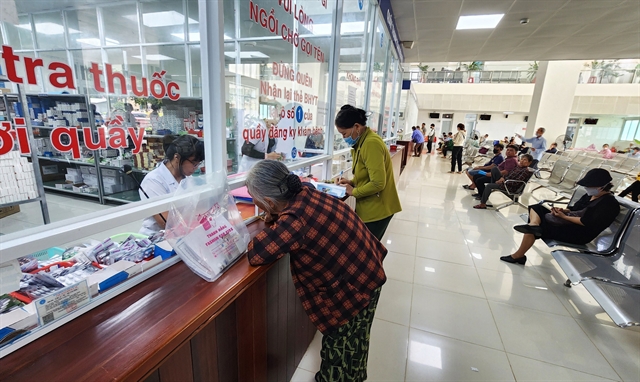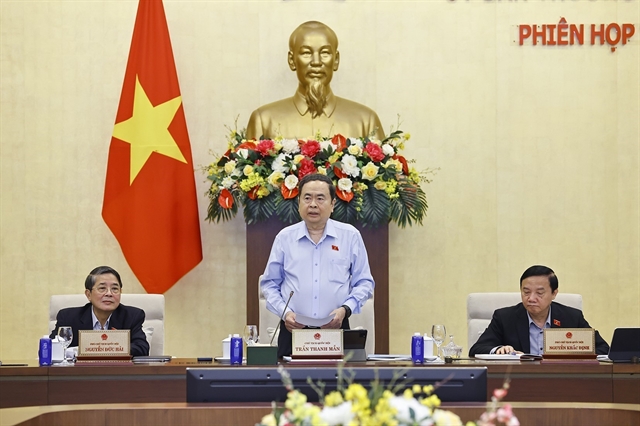 Opinion
Opinion

.jpg)
|
| Filip Graovac, Vietnam deputy country representative for The Asia Foundation. — Photo courtesy of The Third Space |
While large manufacturers and big businesses adopt digital tools to facilitate marketing and distribution of their products amid the COVID-19 outbreak, a majority of small business owners and underemployed youth in rural areas use their smartphones for communication and entertainment rather than for business due to a lack of digital skills.
In that context, the Go Digital ASEAN programme was launched to equip micro and small enterprises and underemployed youth, particularly in rural and isolated areas, with crucial digital skills and tools, expand economic opportunity across ASEAN member countries and minimise the negative impacts of the COVID crisis.
In just one year the project has enabled thousands of micro entrepreneurs and underemployed youths to expand their businesses and reach customers outside their communities.
Filip Graovac, Vietnam deputy country representative for The Asia Foundation, speaks to Việt Nam News about the project, its outcomes so far and future plans.
Can you tell us about the significance of the Go Digital ASEAN programme and what it brings to the region, especially Việt Nam?
Go Digital ASEAN is a digital skills training initiative across ASEAN approved for implementation by the ASEAN Coordinating Committee on Micro, Small, and Medium Enterprises (ACCMSME) and implemented by The Asia Foundation with support from Google.org, Google’s philanthropic arm.
This is ACCMSME’s first public-private collaboration and the regional initiative will train up to 200,000 people in rural regions and underserved communities, including entrepreneurs, underemployed youth and women. Amid the current pandemic, the value of digital literacy skills and online safety awareness is increasing. In Việt Nam, a significant number of citizens tried new digital services with many of them intending to continue this digital consumption behaviour post-pandemic.
The 2020 e-Conomy SEA report by Google, Temasek and Bain & Company also shows a clear difference in growth among consumers from non-metro areas.
While technology has empowered hundreds of millions of people across Southeast Asia, many more are struggling to survive and are urgently looking for ways to adapt their business to reach new markets. Mastering the new digital landscape has become increasingly important to the future of Việt Nam’s digital economy.
At this unique moment in history, the Government of Việt Nam is looking to rapidly increase the ability of micro-entrepreneurs to use online tools and markets to compete and grow their businesses, and to make sure that young people and other jobseekers have the knowledge and resources they need to find a productive place in the digital economy.
Through Go Digital ASEAN, we aim to provide opportunities for the segments of population that have not fully utilised access to the internet and various digital services and products. We believe that the digital divide between the under-connected and the hyper-digitalised will only deepen in the current crisis if programmes like these are not implemented. We also understand that governments, businesses and NGOs must pool their resources and experiences together.
With support from our partners, the programme has been very successful in Việt Nam, and as of June 2021 we have trained 65,000 entrepreneurs and underemployed youth, 80 per cent of whom are women, in the northern and north-central parts in digital skills like online job search, basic social media marketing and online safety and security. We are expecting to train an additional 16,650 people by the end of the calendar year.
How has the programme been implemented, and what obstacles if any does it face?
Working with local partners, the project is designed to equip individuals with crucial digital skills and tools, expand economic opportunity across ASEAN Member States (AMS) and minimise the negative impacts of the COVID crisis. COVID has upended businesses at every level.
Our focus is to support micro- and small-business growth, improve the livelihoods of individuals trained, promote engagement of the community in digital economy and contribute to economic development of the community and country, and support underemployed youth by providing them the necessary skills to utilise online tools to improve their employment opportunities.
In Việt Nam, The Asia Foundation is working with Tình Thương One-member Limited Liability Microfinance Institution (TYM), a reputable non-profit microfinance service provider with a strong social mission, and Vietnet Information Technology and Communication Center (Vietnet-ICT), an NGO with experience in running ICT programmes for disadvantageous groups.
So far we have reached 65,000 individuals and trained a pool of 500 local ‘master trainers’ in 13 northern and north-central provinces of Việt Nam. These master trainers, who are also local staff of TYM, travel to villages daily to conduct microfinance transactions and directly deliver digital training to TYM clients, Go Digital ASEAN’s target beneficiaries.
The Asia Foundation, together with TYM, has made great strides over the past year to design a relevant training package that is practical and easy for local master trainers to use and share with rural and mountainous communities.
Trainers also had to look for ways to effect change at scale during the pandemic, with the lockdown impacting both programme awareness and attendance.
Will the programme continue in future?
We aim to continue the programme and train another 16,650 people this calendar year. We are aware that the demand for digital skills, especially during the COVID-19 crisis, is extremely high.
The Asia Foundation in Việt Nam has numerous programmes focused on financial and digital literacy for a low-income population, and we are always looking to expand these programmes via partnerships with microfinance institutions and businesses.
Such partnerships go a long way in improving our ability to offer services and training to other segments of the population and broaden our geographical reach to other regions of Việt Nam. — VNS




